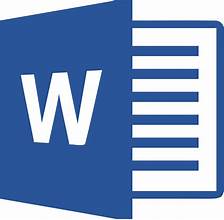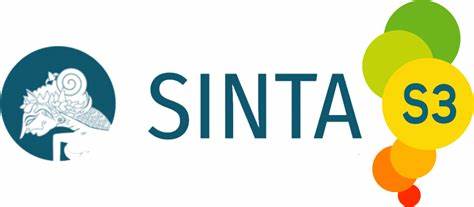MOTIVATION AND ITS RELATIONSHIP WITH ESSAY WRITING ACHIEVEMENT IN THE HIGHER EDUCATION LEVEL
DOI:
https://doi.org/10.22460/eltin.v10i2.p113-126Keywords:
Motivation, Essay Writing Achievement, CorrelationAbstract
Writing is usually considered the most challenging skill to be mastered for Indonesian EFL students. Consequently, they may experience a lack of motivation in the writing process, which might influence their writing achievement. Therefore, this study was conducted to investigate the level of students’ writing motivation, the relationship between their motivation, factors affecting students’ motivation in essay writing and achievement in writing, and the effective strategies they use to improve their writing motivation. This study utilized a mixed-method research design which involved 25 students who took essay writing class. The instruments employed were questionnaire and interviews. The result of quantitative data analysis showed that there was a positive correlation between students’ motivation and their achievement in essay writing (r (23) = .304 p <.05). It indicated that the students who had higher motivation in writing displayed a higher level of writing performance. While qualitative study revealed some factors that impeded students’ writing motivation and writing achievement, namely the lack of teachers’ effective teaching methods and attitudes and the lack of students’ linguistic competence. This study offers useful implications toward teaching and further research.
References
Akaranga, S. I., & Makau, B. K. (2016). Ethical considerations and their applications to
research: a case of the University of Nairobi. Journal of Educational Policy and
Entrepreneurial Research, 3(12), 1–9. https://doi.org/2016
Akhtar, M. I. (2017). Research design. Research in Social Science: Interdisciplinary Perspectives, 68–84.
Al-Hoorie, A. H., & Macintyre, P. D. (2020). Contemporary language motivation theory (P. D. MacIntyre & A. H. Al-Hoorie (eds.)). British Library.
Alisha, F., Safitri, N., & Santoso, I. (2019). Students’ difficulties in writing EFL. Professional Journal of English Education, 2(1), 20–25.
Alqadi, K. R., & Alqadi, H. M. (2013). The Effect of extensive reading on developing the grammatical accuracy of the EFL Freshmen at Al Al-Bayt University. Journal of Education and Practice, 4(6), 106–114.
Ambarita, R., Kristiana, V., & Dewi, R. S. (2022). The Effect of metacognitive strategy in improving students reading ability at STIE Alwashliyah Sibolga. PROJECT (Professional Journal of English Education), 5(1), 194–199.
Anh, D. T. N. (2019). EFL Student’s Writing Skills: Challenges and remedies. Journal of Research & Method in Education, 9(6), 74–84. https://doi.org/10.9790/7388-0906017484
Ariyanti, A., & Fitriana, R. (2017). EFL students’ difficulties and needs in essay writing. Advances in Social Science, Education, and Humanities Research (ASSEHR), 158(1), 111–121.
Aryanika, S. (2016a). The correlation between the Students’ Writing Motivation and the Writing Ability. English Education: Jurnal Tadris Bahasa Inggris, 9(1), 215–232.
Aryanika, S. (2016b). The correlation between the students’ writing motivation and their writing ability. English Education: Jurnal Tadris Bahasa Inggris, 9(1), 215–232.
Bahous, R., Bacha, N., & Nabhani, M. (2011). Motivating students in the EFL classroom: a case study of perspectives. English Language Teaching, 4(3), 33–43. https://doi.org/10.5539/elt.v4n3p33
Bowen, P., Rose, R., & Pilkington, A. (2017). Mixed methods- theory and practice. sequential, explanatory approach. International Journal of Quantitative and Qualitative Research Methods, 5(2), 10–27. https://doi.org/10.3969/j.issn.1006-6896.2017.3.021
Bruning, R., & Horn, C. (2000). Developing motivation to write. Educational Psychologist, 35(1), 25–37. https://doi.org/10.1207/S15326985EP3501_4
Cahyono, B. Y., & Rahayu, T. (2020). EFL Students’ Motivation in Writing, Writing Proficiency, and Gender. TEFLIN Journal, 31(2), 162–180. https://doi.org/10.15639/teflinjournal.v31i2/162-180
Chien, S. C. (2012). Students' use of writing strategies and their English writing achievements in Taiwan. Asia Pacific Journal of Education, 32(1), 93–112. https://doi.org/10.1080/02188791.2012.655240
Dang, T. B. D., Le, V. L., & Ha, T. V. (2021). Factors affecting motivation of English-majored students towards learning English At a University in the Mekong Delta, Vietnam. European Journal of English Language Teaching, 6(6), 95–115. https://doi.org/10.46827/ejel.v6i6.3952
Fareed, M., Ashraf, A., & Bilal, M. (2016). ESL learners’ writing skills: Problems, Factors, and Suggestions. Journal of Education & Social Sciences, 4(2), 81–92. https://doi.org/10.20547/jess0421604201
Fitzgerald, J., & Shanahan, T. (2000). Reading and writing relations and their development. Educational Psychologist, 35(1), 39–50. https://doi.org/10.1207/S15326985EP3501_5
Ghufron, M. A., & Hawa, M. (2015). The effect of collaborative writing technique in teaching argumentative Essay Writing Viewed From the Students’ Creativity. Language Circle : Journal of Language and Literature, 10(1), 49–60. https://doi.org/10.15294/lc.v10i1.4158
Graham, S., & Perin, D. (2007). A meta-analysis of writing instruction for adolescent students. Journal of Educational Psychology, 99(3), 445–476. https://doi.org/10.1037/0022-0663.99.3.445
Habibi, H., Salleh, A. H., & Singh, M. K. S. (2015). The effect of reading on improving the writing of EFL students. Pertanika Journal of Social Sciences and Humanities, 23(4), 1115–1138.
Hafrison, M. (2020). Student writers’ academic essay writing problems: students’ and teachers’ responses. Education and Humanities Research, 485(Iclle), 251–260.
Hashemian, M., & Heidari, A. (2013). The relationship between L2 learners’ motivation/attitude and success in L2 writing. Procedia - Social and Behavioral Sciences, 70(1), 476–489. https://doi.org/10.1016/j.sbspro.2013.01.085
Ilahiyah, A. I., Andina, D. M., Tiven, P. A., & Cahyono, B. Y. (2019). Indonesian EFL students’ reading motivation and writing achievement across gender. suite: Journal of English Education, Literature and Culture, 4(2), 119–131.
Johnson, D. (2017). The Role of teachers in motivating students to learn Davion Johnson. Journal of Graduate Studies in Education, 9(1), 46–49.
Julian, D. M., Simaibang, B., & Mulyadi, M. (2021). The Correlations among learning motivation, self-confidence, and writing ability of students descriptive text. Jurnal Penelitian Guru Indonesia, 6(1), 142–148.
Kakandee, M. (2017). Law students’ essay writing performance and their writing difficulties. European Journal of Language and Literature, 9(1), 80–89. https://doi.org/10.26417/ejls.v9i1.p80-89
Klimova, B. F. (2013). The importance of writing. Paripex - Indian Journal Of Research, 2(1), 9–11. https://doi.org/10.15373/22501991/jan2013/4
Lam, S. F., & Law, Y. K. (2007). The Roles of instructional practices and motivation in writing performance. Journal of Experimental Education, 75(2), 145–164.
Latifah, U., & Ulfa, S. M. (2020). The effectiveness of using collaborative writing strategy for writing ability of Senior High School students. SELL Journal, 5(1), 1–18.
Li, P., & Pan, G. (2009). The relationship between motivation and achievement—a survey of the study motivation of English majors in Qingdao Agricultural University. English Language Teaching, 2(1), 123–128. https://doi.org/10.5539/elt.v2n1p123
Madjid, S., Emzir, & Akhadiah, S. (2017). Improving academic writing skills through contextual teaching-learning for students of Bosowa University Makassar. JETL (Journal Of Education, Teaching and Learning), 2(2), 268–272.
Melekoǧlu, M. A., & Wilkerson, K. L. (2013). Motivation to read: how does it change for struggling readers with and without disabilities? International Journal of Instruction, 6(1), 77–88.
Nasihah, M., & Cahyono, B. (2017). Language learning strategies, motivation, and writing achievement of Indonesian EFL students. Arab World English Journal, 8(1), 250–263.
Nurdianingsih, F. (2018). Language learning strategy and students writing skill achievement: a Correlational Research. Indonesian EFL Journal, 4(2), 23–31. https://doi.org/10.25134/ieflj.v4i2.1372
Pablo, J. C. I., & Lasaten, R. C. S. (2018). Writing difficulties and quality of academic essays of Senior High School students. Asia Pacific Journal of Multidisciplinary Research, 6(4), 46–57.
Pajares, F., & Valiante, G. (2001). Gender differences in writing motivation and achievement of Middle School students: a function of gender orientation? Contemporary Educational Psychology, 26(3), 366–381.
Paszylk, B. L. (2009). Integrating reading and writing into the context of CLIL classroom: some practical solutions. International CLIL Research Journal, 1(2), 47–53.
Refnita, L. (2014). Students’ grammatical problems in writing simple paragraphs : lack of grammatical competency or language carelessness Proceedings of ISELT FBS Universitas Negeri Padang, 2(1), 292–300.
Rizki, I., Noufaldi, D., & Apsari, Y. (2020). Teaching writing narrative text by using collaborative learning. Professional Journal of English Education, 3(3), 329-336.
Soraya, K. (2016). The effectiveness of collaborative writing strategy (CWS) in writing lessons is regarded to the students’ creativity. Lingua Cultura, 10(2), 63–67.
Subekti, A. D. (2018). L2 motivational self-system and L2 achievement: A study of Indonesian EAP learners. Indonesian Journal of Applied Linguistics, 8(1), 57–67.
Upa, Y., & Mbato, C. L. (2020). English teacher identity construction: Indonesian teachers’ motivation and strategies in teaching English for special needs students. PROJECT (Professional Journal of English Education), 3(2), 311.
Veramuthu, P., & Shah, P. M. (2020). Effectiveness of collaborative writing among Secondary school students in an ESL classroom. Creative Education, 11(01), 54–67.
Viera, R. T. (2017). Vocabulary knowledge in the production of written texts : a case study on EFL language learners. Revista Technologica ESPOL - RTE, 30(3), 89–105.
Wigati, F. A. (2016). The effect of the implementation of Quantum teaching strategy in teaching writing a descriptive text. Jurnal Pendidikan Unsika, 4(1), 42–50.
Wigfield, A., & Cambria, J. (2010). Achievement motivation. The Corsini Encyclopedia of Psychology. https://doi.org/10.1002/9780470479216.corpsy0008
Wijaya, K. F., & Mbato, C. L. (2020). Graduate students’ perceptions on their self-efficacy in writing academic papers. ELT Worldwide: Journal of English Language Teaching, 7(1), 31–41. https://doi.org/10.26858/eltww.v7i1.13010
Wilson, K. M., & Trainin, G. (2007). First-grade students’ motivation and Achievement for reading, writing, and spelling. Reading Psychology, 28(3), 257–282. https://doi.org/10.1080/02702710601186464
Yilmaz, E., Şahin, M., & Turgut, M. (2017). Variables affecting student motivation based on academic publications. Journal of Education and Practice, 8(12), 112–120.





